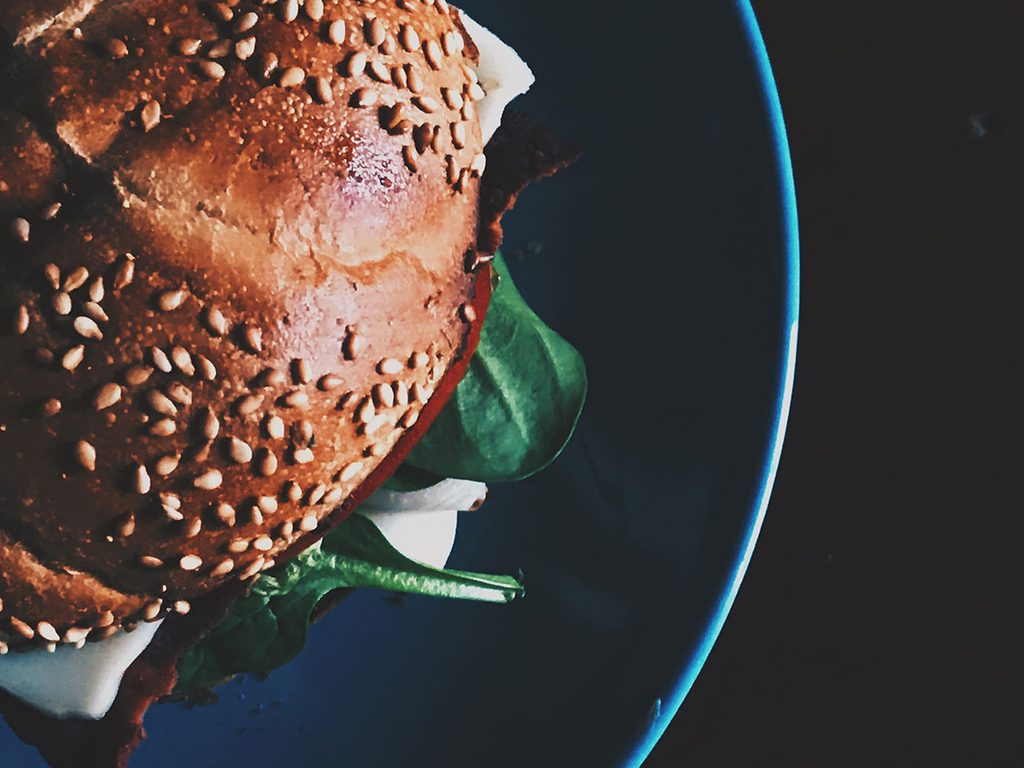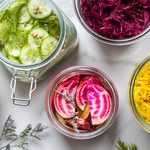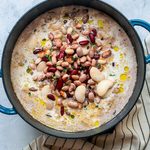Demonizing Food? It’s a Sign of Orthorexia

Many of us demonize food, but since when has what we put in our mouths become our biggest enemy? Here's how to determine if you suffer from orthorexia and have an unhealthy relationship with food.
Do you remember the last time you ate a cheeseburger? I do. It was summer, and I was at a local burger bar with my then-boyfriend, Q. He ate a double patty, and I did, too. Every bite was bliss, and I stayed in that euphoric state until I wiped my plate clean. Q went on to eat fries, but I did something different: I went on to feeling guilty. Then a familiar voice started yammering in my head, spinning its regular tune:
UGH. I JUST ATE A CHEESEBURGER. HOW MANY CALORIES WAS THAT? HMM… 700? 800? I SHOULDN’T HAVE EATEN IT. WAIT, WHAT DID I EAT FOR LUNCH AGAIN? UGH. I ALSO HAD CHOCOLATE TODAY! I SHOULDN’T HAVE EATEN IT.
It didn’t matter that I worked out for two hours that day, or that it was just one burger. That voice was in my head, and it was going to make me feel all kinds of remorse for the rest of the night.
Here’s the thing: I actually have a healthy relationship with food, about 80 percent of the time. I’m Italian, so there’s that, but I’m also an athlete, so eating well – and eating often – is just as critical to my training as anything else. It’s that lingering 20 percent that is starting to drive me crazy because, on those occasions when I eat outside of my lane, I sometimes feel guilty about it. (Sound familiar? Learn the signs of disordered eating to determine if you’re at risk.)
Am I alone in feeling this way? Nope. And the reason I say this with such conviction is because I witness it all the time. When women come to my gym class on Mondays, they almost always tell me “how bad” they were on Saturday night and “how much” they need this workout. I’ve been at a table where a plate of fries is placed down and all the girls stare at those little fried potatoes with such intensity but only allow themselves a scant handful.
We live in an age where body positivity is at an all-time high. Women of all shapes and sizes are gracing everything from magazine covers to runways to gym poster ads. The message is clear: Love the body you’re in. So, why do so many of us still demonize what we put in it?
In some ways, it’s actually not our fault. Blame it on social media, magazines or men even, but we have a lot to live up to when it comes to how we look, so it’s natural that we build a bit of a contentious relationship with food as a result. What we eat has the most impact on how we look (#truth) and, frankly, it’s a lot harder for us to maintain our weight compared to guys, too. But it’s that obsession with aesthetics that is our biggest problem. If we don’t flip the script on food as fuel, not our enemy, we’re in trouble – and it can only go downhill from here. “I don’t know many woman who haven’t suffered through some form of disordered eating or preoccupation with food and their body at one point in their life,” says Kyla Fox, a master’s level clinician, social worker and founder of the Kyla Fox Centre, an eating-disorder recovery centre and women’s wellness centre in Toronto. “We live in a culture where rules and regulations are so encompassing when it comes to what we eat,” she says. “Office talk is usually about ‘OMG, I was so bad this weekend’ or ‘It’s Monday and I better have a good week.'”
And while we think we’re helping our friends by commiserating, it’s one of the many ways in which we collectively support these behaviours, and it can be deeply harmful, since we’re always associating food with shame and guilt and it’s on a constant loop.
Add to this the chatter surrounding health in our country today and it’s pretty manic. We’ve become obsessed with diets, food fads and restrictions. Plant-based! Gluten-free! Paleo! Keto! (Which actually has many dangers associated with it.) No alcohol! No sugar! No fun! Is it any wonder we sift through our plates – and choices – with a fine-toothed comb?
The conversation surrounding disordered eating is muddy because it’s hard to ascertain what constitutes it. Although disordered eating is considered subtler in approach than a diagnosed clinical eating disorder, such as anorexia and bulimia, it’s no less dangerous. Worse yet, it’s affecting so many of us, and we don’t even know it. Orthorexia, a condition in which one becomes obsessed with eating clean, is not a clinical eating disorder (yet), but those on the front lines are noticing an uptick. “It’s inadvertently supported by our culture given how many opinions exist on what it means to be healthy,” says Fox. “Which makes it really hard to detect.” She goes on to say that most people affected by disordered eating actually look entirely normal and are almost always very high functioning: They’re mothers and CEOs – some of the most capable and seemingly confident people out there – but they live in a world of restrictions, whether they don’t eat all day, binge at night or purge through exercise. “The symptoms aren’t as clear cut as anorexia or bulimia because they may do all of the above at different times,” she says.
Naturopathic doctor Jodi Larry runs a private practice in Toronto and offers a 10-day clean-eating clinic designed to help men and women build healthier relationships with food. This isn’t about what’s trending; rather, it’s an educational program that teaches clients how to nourish their bodies in the best possible way for good health. “First and foremost, people have to be clear on what their goals and values are,” she says. “It’s very easy to say ‘I want to get healthy,’ but why? What’s your motivation?” That said, if shedding pounds on this program is your only goal, Larry will lose your invite to the group. “It’s interesting because when I ask women how much they think about their weight during the day, it can be 100 percent of the time,” she says. “If a woman weighs herself in the morning and she has lost three pounds, she’ll have the best day ever. If she has gained three pounds? The worst. That’s dangerous because when we focus so much attention on weight, it can lead to cycles of deprivation and excess when it comes to what we eat. Weight loss shouldn’t be your number one goal; being healthy should be.” (Psst: Here are some mantras you can try to feel better about your food choices.)
It’s not about identifying good versus bad foods but rather about looking at what food does for you and your body. Is what you’re eating beneficial or harmful to your health overall? Answer that and you’re on your way to understanding that food should be your friend, not your foe. Also critical is this: Say you end up eating that caramel chocolate fudge brownie (or a double cheeseburger, as was my case). Guess what? Your world didn’t fall apart, and you’re going to be just fine. Why? Because perfection doesn’t exist, and if you allow yourself to feel all that shame, you’re going to be stuck in it. “Understand your humanness and focus more on kindness and self-compassion,” she says. “The path to health isn’t always a straight line; it’s very topsy-turvy. But if you come back to your values and commit to what you want for yourself in terms of your health, not just your weight, you’ll make it.”
It’s food for thought. Although balance isn’t a word I like to use often, that’s exactly what this discussion is all about. If you can find harmony in your health and understand that your body is powerful, beautiful and strong, you’ll feel good and I guarantee you’ll believe it, too. Now, where are those fries?
Now that you’ve learned about disordered eating and orthorexia, learn the non-daunting ways to be healthy AF.




